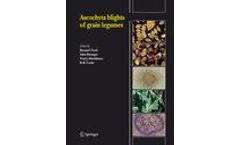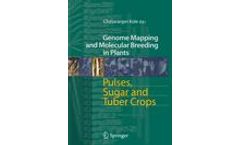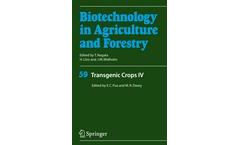Refine by
bean books
8 books found
Does your stomach groan if you are exposed to raw milk or green fava beans? If so, you are ...
Ascochyta blights consistently affect large areas of grain legume production (pea, lentil, chickpea and faba bean) in all countries where they are cultivated. These diseases are capable of causing large yield losses under conducive environmental conditions. ...
This includes sorghum, the major millets - pearl, foxtail, proso and finger millet, as well as teff, the major pseudocereals - quinoa, amaranth and buckwheat, and emerging legume grains - lupin, cowpea, Bambara groundnut and marama beans. These are all characterized as gluten-free ...
Genetic erosion, that is, the loss of native plant and genetic diversity has been exponential from the Mediterranean Basin through the Twentieth century. This careless eradication of species and genetic diversity as a result of human activities from a 'hot-spot' of diversity threatens sustainable agriculture and food security for the temperate regions of the world. Since the early 1900s ...
The incorporation of haploids in breeding programs is one of the latest techniques used for crop improvement. The present volume comprises 30 chapters by international experts and informs on the methods involved, such as in vitro production of haploids by culture of anthers, studies of pollen embryogenesis, genetic analysis of haploids. It also discusses the genetic stability of haploid cell ...
This new book,Sustainable Practices in Surface and Subsurface Micro Irrigation, offers a vast amount of knowledge and techniques necessary to develop and manage a drip/trickle or micro irrigation system. The information covered has worldwide applicability to irrigation management in ...
Genome Mapping and Molecular Breeding in Plants presents the current status of the elucidation and improvement of plant genomes of economic interest. The focus is on genetic and physical mapping, positioning, cloning, monitoring of desirable genes by molecular breeding and the most recent advances in genomics. The series comprises seven volumes: Cereals and Millets; Oilseeds; Pulses, Sugar and ...
Genetic engineering is a powerful tool for crop improvement. Crop biotechnology before 2001 was reviewed in Transgenic Crops I-III, but recent advances in plant cell and molecular biology have prompted the need for new volumes. Transgenic Crops IV deals with cereals, vegetables, root crops, herbs and spices. Section I is an introductory chapter on the impact of plant biotechnology in agriculture. ...






